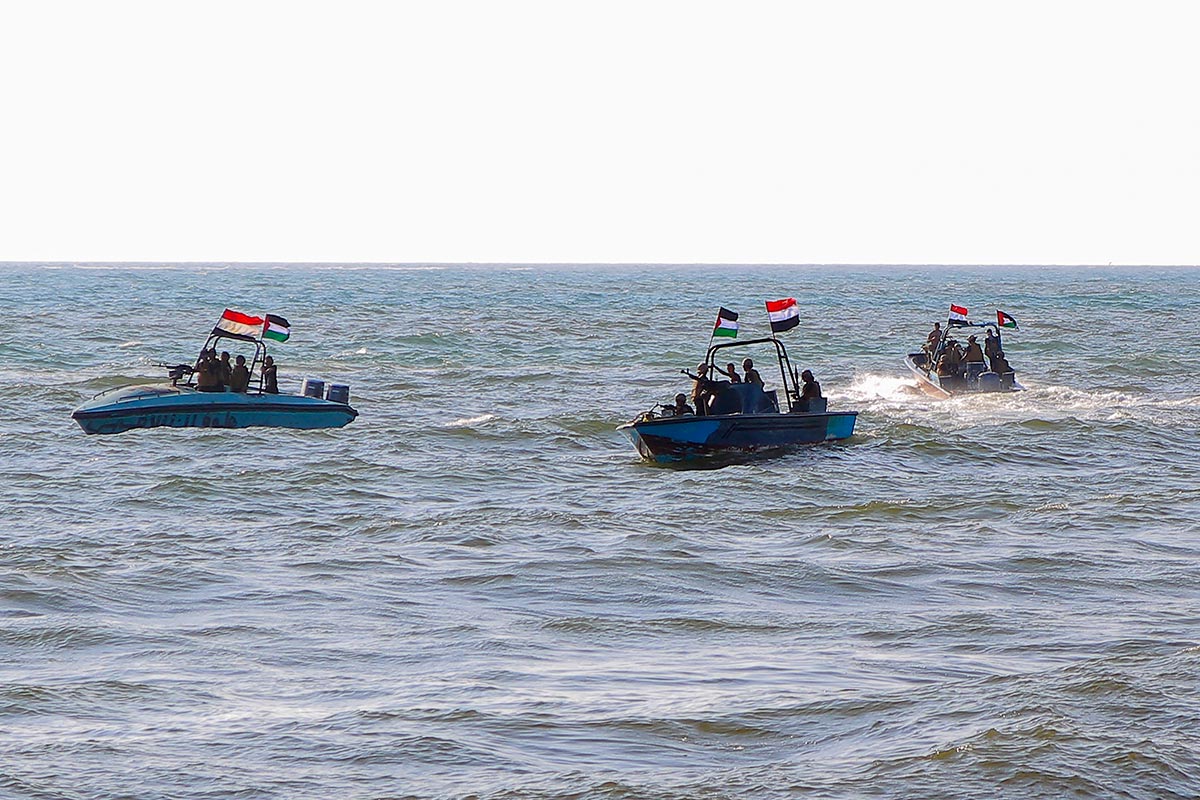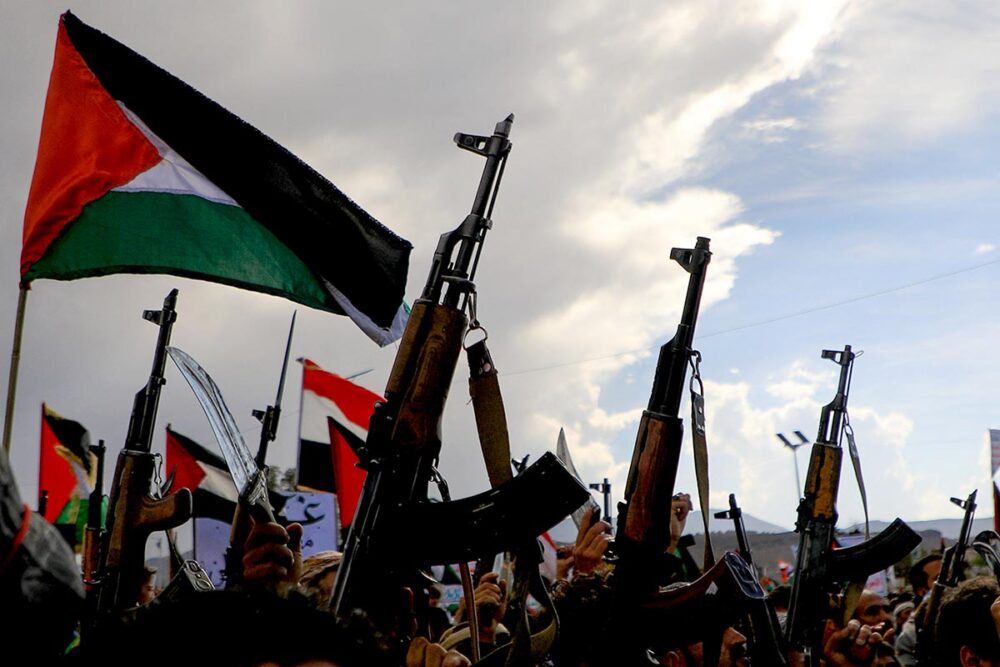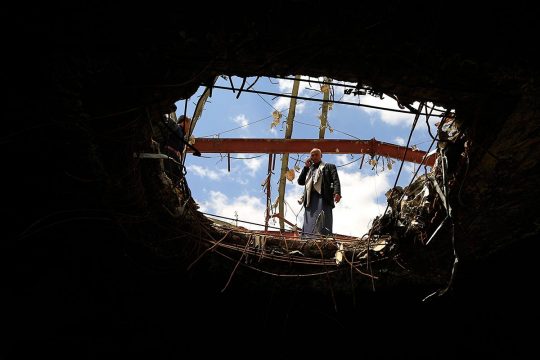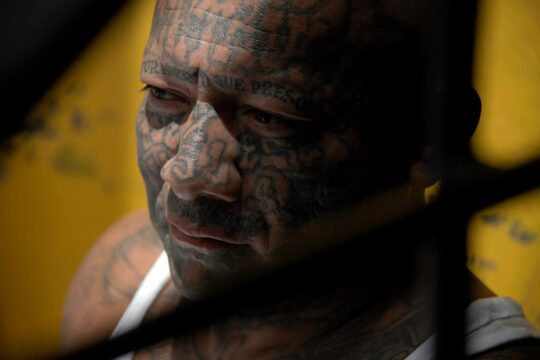“We have until now documented more than 13,000 violations by all parties to the conflict, and many of them can be war crimes,” says Radhya Al-Mutawakel, co-founder and chairperson of Yemeni human rights organization Mwatana. “The war in Yemen is not only a civil war, it is also a proxy war, and it has an international dimension. We have documented violations by the Saudi and Emirati-led coalition, by the Houthis, by the Southern Transitional Council, by the internationally recognized government, and also by the United States for the drones. All those who are involved in the war in Yemen should be held accountable.”
The main conflict is seen as between Iranian-backed Houthis, who control the capital Sana’a and northern regions where 70% of the population live, and the internationally recognised government backed by Saudi Arabia and the United Arab Emirates [UAE). But, say experts, the conflict goes much deeper than that. A proxy war between Shiite Iran and Sunni Saudi Arabia has worsened a longstanding Yemeni tribal conflict. Yemen remains fragmented mainly between areas controlled by the Houthis, the internationally recognized government and the Southern Transitional Council – the de facto government in the south, backed by the UAE. Many highways are blocked, the economy is in ruins, and nearly 20 million Yemenis still need humanitarian aid.
“What we are seeing is repeated violations, war crimes committed by local and regional actors,” says Ahmed Nagi, Senior Analyst for the International Crisis Group (ICG). “From 2011 to 2015, we are talking about local actors, namely the Houthis and other militias. But when the Saudi-led coalition started its military operations in 2015, things reached a whole new level.”
Saudi airstrikes on Yemen that left heavy civilian casualties hit the headlines. In September 2021, a UN experts’ report denounced serious violations by all parties to the conflict. The violations include “airstrikes and shelling, failing to abide by international humanitarian law principles, humanitarian restrictions as well as obstacles to access to food and healthcare, arbitrary detention, enforced disappearances, gender-based violence, including sexual violence, torture and other forms of cruel, inhuman or degrading treatment.” The report also denounced recruitment and use of children as soldiers. Mwatana produced a report, also in September 2021, documenting starvation as a weapon of war.
Fragile truce, ongoing violations
The situation has improved somewhat since April 2022, as a six-month UN-brokered ceasefire has been followed by a fragile truce. However, human rights organisations and experts say violations against civilians are continuing, although they are not getting much international attention. According to Nagi, these include arresting and torturing opponents, forced disappearance, suppressing freedom of expression, and restrictions on movement, especially for women. Mwatana details ongoing violations against civilians in a briefing published in January this year.
In addition, there are fears that the Houthi attacks on Red Sea shipping and retaliatory US-UK airstrikes in Yemen could have a negative impact on the UN led peace process. “The whole peace process we were hearing about has stopped,” Al-Mutawakel told Justice Info, “and I don’t know now the future of this political agreement that was very close. It is not clear for us as Yemenis. Now there is a new war and new airstrikes, and this will never stop until there is a ceasefire in Gaza.”
While the Houthis say their attacks on Red Sea shipping are in support of Palestinians, these attacks are also intended to boost their popularity in the street and in the Arab world. “Houthis are not popular,” says Al-Mutawakel. “They controlled Sana’a by force, they committed horrible violations, they don’t provide any services in the area they control. So people don’t like the Houthis. But when it came to Gaza, everything has changed. People in Yemen, although they are very tired by years of war, are ready to take the consequences of supporting Gaza. Houthis suddenly became more popular, not only in Yemen but also in the Arab region.”
According to the ICG, Houthi attacks on commercial shipping in the Red Sea “could also undermine efforts to bring Yemen’s wars to an end. Saudi Arabia and the Houthis have made progress in their long-running talks to reach a deal on Saudi military withdrawal from Yemen and the start of an intra-Yemeni political process. But a further escalation could force a delay or even a scuttling of the talks, especially if the Houthis are so empowered that they feel they can make new demands on their Saudi interlocutors”.

What accountability?
“The difficulty with Yemen is that the court system is obviously broken down, and where do you find any kind of accountability, even at the lowest level in a truth and reconciliation-type mechanism?” says Charles Garraway, a former member of the UN Group of Eminent Experts on Yemen. “Until you stop the conflict, you are not going to achieve even that.”
Asked if a Truth Commission should be part of a peace deal, he says it should, but “whether it would be I don’t know, because my experience of Arab states is that they are not particularly keen on that, for some reason. There has got to be some form of accountability, but how that takes place is extremely difficult”. Nagi agrees. “This conflict has created huge grievances in local communities,” he told Justice Info. “And these grievances, if we leave them without solutions or having transitional justice, will create a new wave of conflict.”
The International Criminal Court (ICC) has no jurisdiction over Yemen, as none of the parties have signed up to its Statute, and there is little chance of a referral by the UN Security Council, in the absence of consensus among the permanent five members. Creation of an international tribunal for Yemen is not on the cards any time soon.
“The accountability mechanisms that have been created for different conflict zones, any international investigation mechanism like happened for Ukraine, Sudan, Syria, Myanmar, we couldn’t get that for Yemen for political reasons,” says Al-Mutawakel. “In 2017, we finally succeeded with a group of European countries that brought a resolution in the Human Rights Council in getting something called the Group of Eminent Experts (GEE) on Yemen. It was like a miracle to have it.”
But, after the GEE’s mandate was renewed once and boosted to include elements of transitional justice, the UN Human Rights Council in October 2021 failed to renew the mandate again. It was the first time such a resolution had failed before the Council in Geneva. So what happened?
“I think it was becoming embarrassing to the Saudis,” says Garraway, former GEE member. “When we first started, the Saudis cooperated with us, the Yemenis cooperated with us, the Houthis cooperated with us to a certain extent, everybody did. But as soon as our first report came out, we became persona non grata in the region, and we then had to do almost all our inquiries remotely.”
“The Saudis and Emiratis did very strong advocacy at the Human Rights Council and even threatened countries,” adds Al-Mutawakel. “And we lost the GEE. It’s like a green light for the warring parties.”
“I don’t see a way out of the mess”
Those who talked to Justice Info suggest a two-track justice process to deal with alleged crimes by both local and international actors. But accountability seems a long way off for now.
“At the moment I don’t see a way out of the mess that Yemen is in, because even if the Saudis were to say we’re stopping attacks on the Houthis, the Houthis can stay where they are, the relationship between the Houthis and the south of Yemen is still so unstable, and there is almost a civil war going on in the south,” says Garraway.
“I had hoped originally that what looked to be a rapprochement between Saudi Arabia and Iran at one stage might have helped, but that seems to have slightly fallen by the board as well at the moment,” he continues. “So I am not quite sure where we go from here. But then as an Irishman, no one was more surprised than me when the IRA [Irish Republican Army] started giving up, and the peace process started. There is always hope.”







